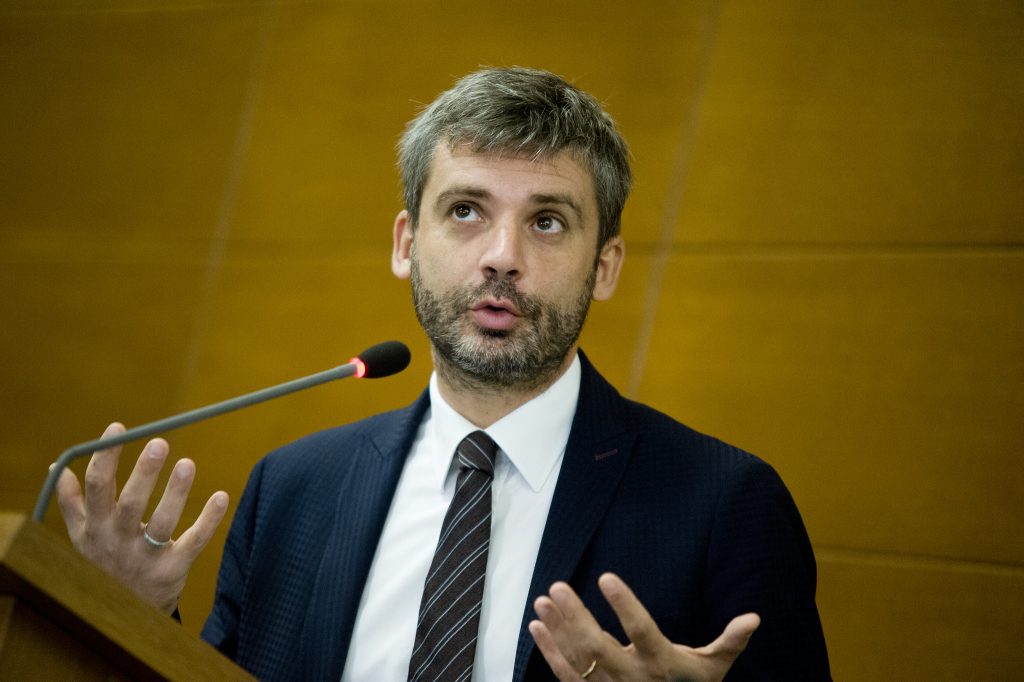"To achieve an overall vision that embraces Christian existence in its complexity". This is how Romano Guardini explains the meaning of "Freedom, Grace, Destiny," one of his most significant studies. And it is not by chance that Jorge Mario Bergoglio draws much of his magisterium from the Italian thinker and theologian, now Servant of God, to the point of "attributing" to him the interpretative approach of his first Apostolic Exhortation Evangelii GaudiumThe magna carta of his entire pontificate.
In the document, Pope Francis quotes Pope Benedict himself as saying Guardini when he asks how to evaluate the processes that build a people: "The only model for successfully evaluating an epoch is to ask to what extent the fullness of human existence develops in it and attains an authentic raison d'être, in accordance with the particular character and possibilities of the epoch itself" (EG, 222).
These premises open the way to a clear and understandable interpretation of what society is for Pope Francis. He explains Massimiliano PadulaThe sociologist of cultural and communicative processes at the Pastoral Institute of the Pontifical Lateran University, interviewed on the occasion of the tenth anniversary of the pontificate of the Argentine Pope.
In your opinion, is it possible to sketch a kind of "sociology of Pope Francis" in these ten years?
-I respond by quoting Romano Guardini and his study "The End of the Modern Age" which, in a way, anticipated the current debate on postmodernity and secularization. Although he was not a sociologist, Guardini outlined sociohistorical categories that have long been at the center of the research of general sociologists and, in particular, those of religion. Pope Francis follows this line, guided (like Guardini) by the light of faith. But he does more: he directs his gaze to the problems of today, incarnated in collective and individual lives.
Can you give us an example?
-Enough to read Laudato si' to understand the extent to which Bergoglio uses a "sociological gaze" to analyze society (he calls it the "human family"). In the Encyclical he highlights the environment as a social fact that generates changes, often not very encouraging for integral human development.
He also manages to capture some of the most urgent instances of our time: among them, acceleration, which he indicates with the Spanish word "rapidación". And which refers to the study by German sociologists Hartmut Rosa and William E. Scheuerman entitled "The high-speed society", a configuration of society which, on the one hand improves our quality of life, and on the other creates new forms of marginalization and exclusion.
In fact, marginalization and exclusion are at the center of the Argentine Pontiff's reflections...
-Of course. They are two interpretative categories of an increasingly stratified, complex and unequal existence. The marginalized and excluded are the poor, the immigrants, the elderly and the sick. But not only. Marginalization and exclusion affect all individuals, all social groups, all micro and macro organizations. It is that of the heart, or rather indifference, which constitutes antisocial and disruptive behavior.
Francis intercepts its various manifestations when, for example, he speaks of a "throwaway culture". But he does not limit himself to a simple diagnosis: he helps us to understand how to fill the gaps, to act and behave with a view to a truly common good.
Apostolic journeys to border areas and countries stricken by war and misery, appeals for peace, the shift from a spatial logic to a processual one, ecumenical dialogue, the proposal of a global educational pact, are some of the signs of his social therapy.
We could say - paraphrasing the characteristics of sociological science - that the Bergoglian magisterium encompasses a descriptive function (providing the keys to access the world) and a prescriptive one (sharing objectives and codes of conduct).
In your opinion, how can sociology relate to Catholicism in the future?
-I believe that their relationship will have to be played out more and more in terms of reciprocity. Sociology will only be able to help religion if the latter is able to rethink itself in the light of society and its changes.
This does not mean abandoning oneself to a sterile relativism, but understanding that social reality is "ontologically" provisional and must be read and lived as such. When Francis insists on abandoning the logic of "it has always been done this way" (he calls it "indietrism"), he demonstrates that he understands well the processes of social morphogenetics.
Among these, two seem to me to be particularly prospective for socio-religious reflection and research in the present and the future. The first is the displacement of the center of gravity of Christianity from a Europe "sick with fatigue" to a southern part of the world that, despite its many problems, demonstrates a fruitful spirituality. The other is the process of personalization of the faith which, while distancing it from tradition, offers new opportunities for evangelization and for vital and creative pastoral care.








